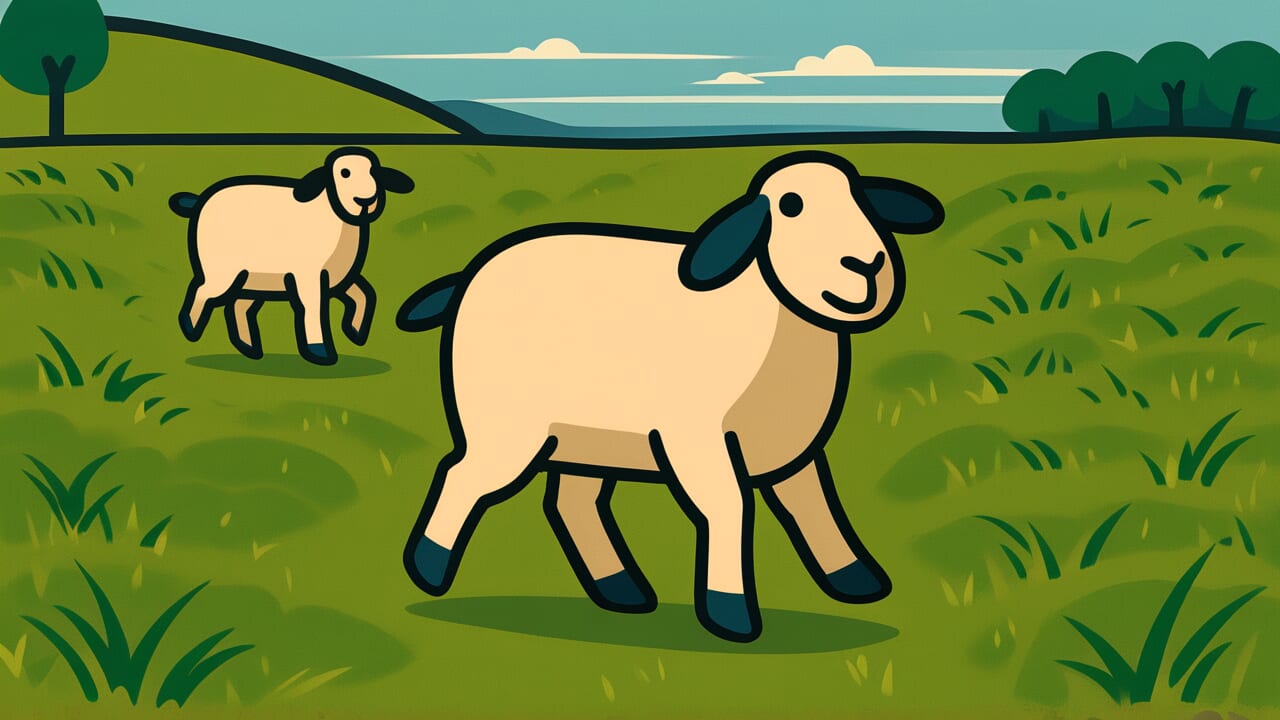How to Read “One sheep follows another”
One sheep follows another
[wun sheep FOL-ohz uh-NUHTH-er]
All words are straightforward and commonly used.
Meaning of “One sheep follows another”
Simply put, this proverb means people often copy what others do without thinking for themselves.
The saying compares humans to sheep in a flock. Sheep naturally follow the animal in front of them. They don’t stop to think about where they’re going. People sometimes act the same way when they follow trends or make decisions.
This happens everywhere in daily life. Students might choose classes because their friends did. Workers might agree with popular opinions at meetings. Shoppers buy items because everyone else seems to want them. The proverb points out how easily we copy others instead of making our own choices.
What’s interesting is how automatic this behavior feels. Most people don’t realize they’re following others until someone points it out. The comparison to sheep isn’t meant to be mean. It simply shows how natural it is for both animals and humans to seek safety in groups.
Origin and Etymology
The exact origin of this specific phrase is unknown. However, sheep-herding comparisons appear in many old texts and languages. These sayings developed in farming communities where people watched sheep daily.
Shepherding was common across Europe and the Middle East for thousands of years. People noticed how sheep moved together in groups. One sheep would start walking and others would follow immediately. This behavior kept the flock safe from predators but sometimes led them into danger.
The comparison between sheep and human behavior spread through spoken language first. Farmers and herders shared these observations with their communities. Over time, the idea appeared in written form across different cultures. The modern English version became popular as more people moved from farms to cities but remembered these rural observations.
Interesting Facts
The word “sheep” comes from Old English “sceap,” which meant the same animal. This word stayed almost unchanged for over a thousand years. The consistency shows how important sheep were to English-speaking communities.
Sheep actually have better memories than many people realize. They can remember faces for up to two years. Their following behavior isn’t just blind copying. It’s a survival strategy that worked well in the wild.
The phrase uses simple, everyday words that anyone can understand. This makes it easy to remember and repeat. Many effective proverbs share this quality of using familiar comparisons from nature.
Usage Examples
- Teacher to student: “Don’t just copy your classmates’ answers without thinking – one sheep follows another.”
- Parent to teenager: “Just because your friends are all getting that expensive phone doesn’t mean you need it too – one sheep follows another.”
Universal Wisdom
This proverb reveals a fundamental tension in human nature between safety and independence. Following others feels safe because groups provide protection and shared knowledge. When everyone makes the same choice, individual responsibility decreases. If things go wrong, no single person bears all the blame.
The drive to follow others runs deeper than simple laziness or fear. Humans evolved in small groups where cooperation meant survival. Those who stayed with the group lived longer and had more children. Those who wandered off alone often faced danger or death. This ancient programming still influences modern behavior, even when the original threats no longer exist.
Yet this same survival mechanism can become a trap. When everyone follows without questioning, groups can make terrible decisions together. The proverb captures this paradox perfectly. The behavior that once kept our ancestors alive can now lead entire communities astray. Understanding this contradiction helps explain why the saying feels both critical and sympathetic. It recognizes a natural human tendency while warning about its dangers.
When AI Hears This
People think following others saves mental energy and time. They assume someone else already did the hard thinking work. This creates a clever system where everyone borrows intelligence from others. But here’s the hidden problem: everyone might be borrowing from borrowers. The original smart thinking disappears when too many people use this shortcut.
This reveals how humans are natural efficiency experts in disguise. Your brain constantly looks for ways to make decisions without working hard. Following others feels like getting expert advice for free. But humans don’t realize they’re all playing the same efficiency game. When everyone tries to be smart by copying others, nobody stays smart.
What fascinates me is how this “lazy” behavior actually shows brilliant strategy. Humans created an invisible network for sharing mental work across groups. Each person becomes both a borrower and a lender of thinking. This system works beautifully until it breaks spectacularly when assumptions fail. The sheep aren’t mindless – they’re running a sophisticated intelligence-sharing economy.
Lessons for Today
Recognizing when we’re following others requires honest self-reflection. The urge to copy others often feels like personal preference or logical thinking. Learning to pause and ask “Why do I want this?” can reveal whether the desire comes from within or from watching others. This awareness doesn’t mean always choosing differently, just choosing more deliberately.
In relationships and group settings, this wisdom suggests paying attention to decision-making patterns. When everyone quickly agrees on something important, it might be worth slowing down. Someone can ask if other options were considered or if anyone has different concerns. This doesn’t create conflict but opens space for more thoughtful choices.
The challenge isn’t to never follow others but to follow more consciously. Sometimes the group really does know best. Other times, independent thinking serves everyone better. The proverb encourages developing the judgment to tell the difference. This balance between cooperation and independence remains one of the most valuable skills for navigating both personal decisions and group dynamics.



Comments